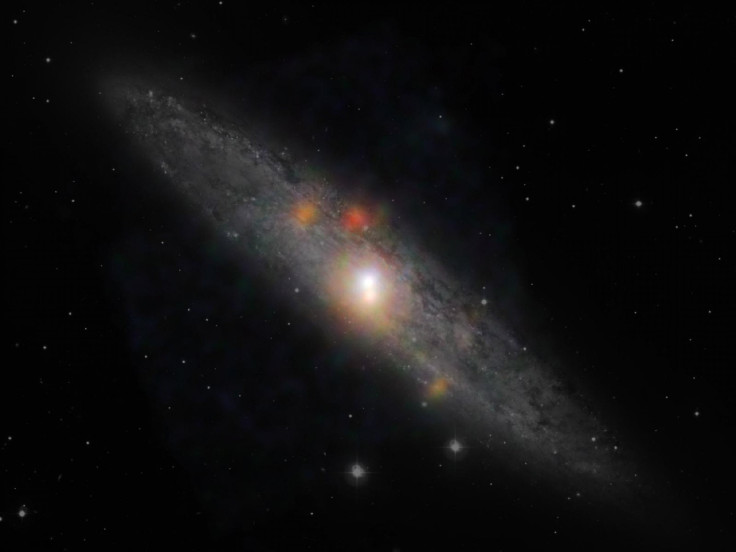Stephen Hawking Says Black Holes Are Not So Black After All, Eliminates ‘Event Horizon’ In Latest Paper

The acclaimed theoretical physicist Stephen Hawking is attempting to unite the worlds of quantum mechanics and general relativity by redefining what a black hole is in his latest paper. According to Hawking, black holes are not “black” by eliminating the notion of an event horizon.
In the paper published on Jan. 22, Hawking says event horizons do not exist. An event horizon is the area around a black hole that is, essentially, the “point of no return,” as light and matter cannot escape due to gravitational pull. While an event horizon can explain why a black hole is dubbed as such, as no light can be seen, Hawking’s work over the years has refined one’s understanding of these incredible space objects by combining quantum mechanics and general relativity.
These two popular branches of physics are often in conflict, and physicists have attempted to bridge these schools of thought into a unified theory. General relativity focuses on the macro scale, how objects affect and bend space-time leading to what is observed, the warping of space-time, as gravity. Quantum mechanics focuses on a micro scale, explaining matter and energy on an atomic and subatomic level.
As explained by New Scientist and on other sites, one area where quantum mechanics and general relativity do not get along is what happens in a black hole. For general relativity, the event horizon means all the “information,” what goes into the black hole, is destroyed and lost forever.
Quantum mechanics disagrees and some information can escape, as Hawking has proved with his theory that black holes emit radiation. “Hawking radiation” describes the emission of radiation from a black hole as particles escape which leads to the loss of energy by the black hole and causes the object to shrink in size.
Hawking admitting to being wrong about the total loss of information within a black hole if it dies, notes New Scientist, but a new debate between the two physics camps has led to Hawking weighing in on the matter. The “firewall paradox” states the exiting of information from a black hole leads to a new contradiction.
According to the researchers from the University of California, Santa Barbara, Ahmed Almheiri, Donald Marolf, and James Sully, and Joseph Polchinski from the Kavli Institute for Theoretical Physics, Hawking radiation is caused by one entangled particle escaping and the other entangled particle being swallowed by the black hole. Entangled particles are connected particles where action on one particle affects the other. The particle that escaped would, in theory, be entangled to the past Hawking radiation, which is a paradox as an entangled particle cannot be connected to two different particles, in this case the particle that fell into the black hole and the past Hawking radiation.
To break this entanglement, and removing the paradox, would result in a massive amount of energy, the “firewall” prior to the event horizon. According to the New York Times, “The existence of a firewall would mean that the horizon, which according to general relativity is just empty space, is a special place, pulling the rug out from under Einstein’s principle, his theory of gravity, and modern cosmology, which is based on general relativity.”
To eliminate the firewall paradox, Hawking proposes to get rid of the event horizon and opting for “apparent horizons,” whose variable state lets light escape from black holes. “The absence of event horizons mean that there are no black holes - in the sense of regimes from which light can't escape to infinity. There are however apparent horizons which persist for a period of time,” writes Hawking.
Hawking says the area outside of the horizon is so chaotic that any information escaping the black hole would be completely different from what entered, likening it to weather forecasting and stating, “One can't predict the weather more than a few days in advance.”
Physicists, speaking to New Scientist and Nature, remain on the fence about Hawking’s paper. Polchinski, speaking to both publications, is skeptical about Hawking’s conclusion, questioning if a black hole without an event horizon is possible.
© Copyright IBTimes 2025. All rights reserved.






















